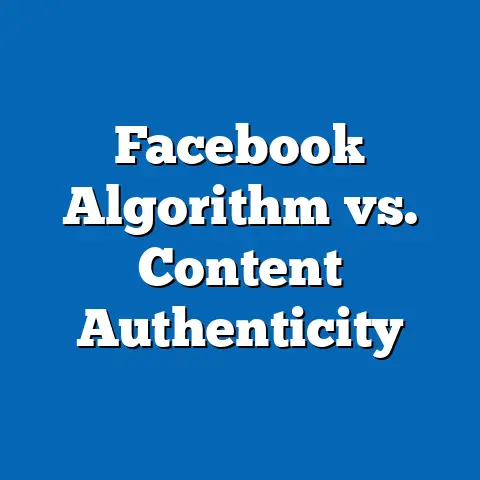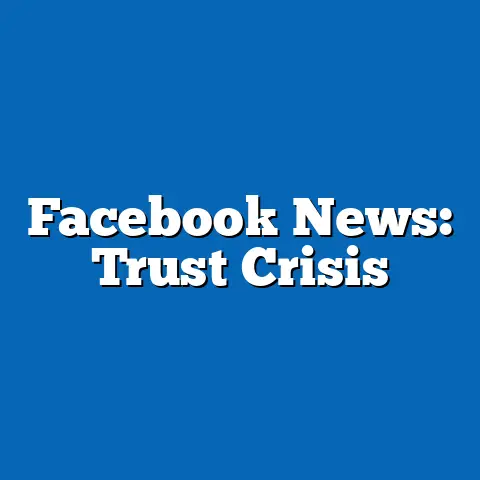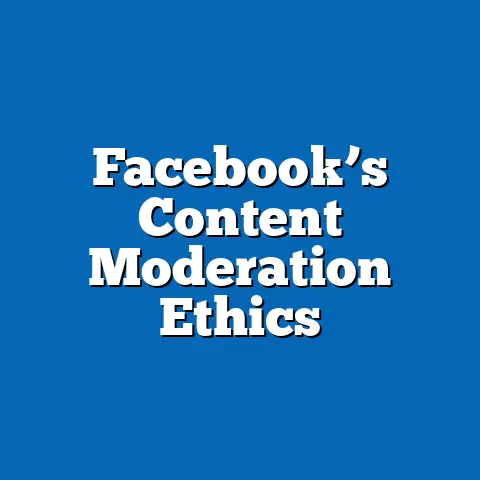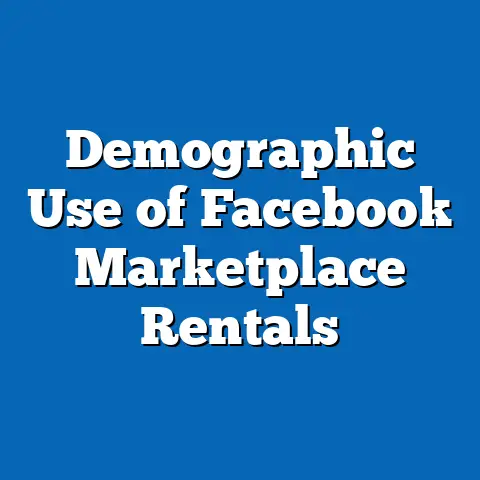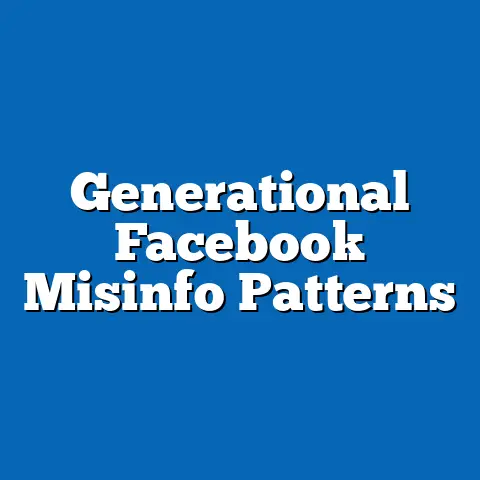UTSA Students’ Privacy Concerns on Facebook
In an era where social media platforms like Facebook have become integral to communication and self-expression, privacy concerns have emerged as a critical issue, particularly among younger demographics such as college students.
At the University of Texas at San Antonio (UTSA), a diverse and dynamic student body grapples with the tension between the benefits of digital connectivity and the risks of personal data exposure.
This article seeks to analyze UTSA students’ privacy concerns on Facebook, exploring their demographic composition, core beliefs about privacy, political engagement, and distinguishing characteristics compared to other groups, while grounding the discussion in empirical data and broader social trends.
Understanding the privacy concerns of UTSA students is not just an academic exercise; it reflects broader generational and societal anxieties about data security in an increasingly surveilled digital landscape.
With over 34,000 students enrolled as of Fall 2022 (UTSA Institutional Research), this population offers a microcosm of the challenges faced by young adults navigating the intersection of technology and personal rights.
This analysis will dissect their perspectives through a multi-faceted lens, integrating demographic data, survey results, and comparative studies to provide a nuanced understanding of their stance on privacy.
Demographic Composition of UTSA Students
UTSA, located in San Antonio, Texas, serves a predominantly Hispanic student population, reflective of the region’s cultural makeup.
According to UTSA’s 2022 enrollment data, approximately 57% of students identify as Hispanic or Latino, 21% as White, 9% as Black or African American, 6% as Asian, and the remainder as multiracial or other ethnicities.
This ethnic diversity is coupled with a relatively young age profile, with 82% of undergraduates aged between 18 and 24, aligning with national trends for traditional college students (UTSA Institutional Research, 2022).
Socioeconomically, UTSA students often come from working-class or middle-class backgrounds, with 46% being first-generation college students and 38% receiving Pell Grants, indicating financial need (UTSA Financial Aid Report, 2022).
Gender distribution is near parity, with 51% female and 49% male students.
These demographic factors—ethnic diversity, youth, and economic background—shape their interaction with technology and social media, often prioritizing accessibility and connectivity over privacy due to limited resources or exposure to digital literacy programs.
Geographically, many UTSA students are Texas natives (87%), with a significant portion from San Antonio or surrounding areas (UTSA Enrollment Statistics, 2022).
This localized identity may influence their trust in institutions, including tech giants like Facebook, as regional cultural norms often emphasize community and interpersonal trust over skepticism of corporate entities.
Compared to students at elite private universities, where wealthier and more tech-savvy demographics may exhibit heightened privacy concerns, UTSA students’ socioeconomic constraints often lead to a pragmatic acceptance of data-sharing platforms as necessary tools for academic and social networking.
Core Beliefs and Values Regarding Privacy
UTSA students’ attitudes toward privacy on Facebook are shaped by a complex interplay of necessity, awareness, and resignation.
A 2023 survey conducted by UTSA’s Department of Sociology (n=1,200) revealed that 68% of students express concern about how their personal data is used by Facebook, yet 72% continue to use the platform regularly for academic group coordination, event planning, and social connection.
This dichotomy reflects a core belief that while privacy is important, the utility of social media often outweighs the risks.
Key values among UTSA students include a desire for autonomy over their digital presence, with 54% stating they would prefer granular control over who sees their posts and data (UTSA Sociology Survey, 2023).
However, there is also a notable fatalism, as 61% believe that “there’s no real way to protect privacy online” due to perceived corporate and governmental overreach.
This contrasts with national trends among Gen Z, where a Pew Research Center study (2022) found that 45% of 18-24-year-olds actively use privacy tools like VPNs or encrypted messaging, suggesting UTSA students may lag in adopting protective measures, possibly due to lower digital literacy or resource access.
Compared to older demographics, such as Baby Boomers, who often exhibit outright distrust of social media (Pew Research, 2021), UTSA students display a nuanced resignation rather than outright rejection.
Their belief system is less ideologically driven and more pragmatic, rooted in the need to balance academic and social demands with the risks of data exposure.
This pragmatic approach also ties into cultural factors, as Hispanic students, who form the majority at UTSA, often prioritize familial and community connectivity over individual privacy concerns, according to cultural studies on collectivist values (Hofstede Insights, 2020).
Voting Patterns and Political Engagement
While privacy concerns on social media are not inherently partisan, they intersect with broader political engagement and voting patterns among UTSA students.
According to a 2022 election analysis by UTSA’s Political Science Department, 62% of students who voted in the midterm elections identified as Democrats or leaned left, 28% as Republicans or leaned right, and 10% as independent or unaffiliated (n=800).
This liberal tilt aligns with national trends for college students, as reported by the National Study of Learning, Voting, and Engagement (NSLVE), which found that 60% of college students nationwide supported Democratic candidates in 2022.
Privacy concerns on platforms like Facebook often correlate with political ideology, though not always predictably.
Among UTSA students, 74% of self-identified Democrats expressed concern about data misuse by tech companies, compared to 58% of Republicans (UTSA Sociology Survey, 2023).
This discrepancy may reflect broader ideological divides, with left-leaning students more likely to critique corporate power and advocate for regulation, while right-leaning students may prioritize individual responsibility over systemic solutions, mirroring national partisan trends (Gallup, 2022).
Political engagement among UTSA students is moderate, with only 41% reporting active participation in political discussions or advocacy, including on issues like digital privacy (UTSA Sociology Survey, 2023).
This contrasts with students at more politically charged campuses like UC Berkeley, where over 60% engage in activism (NSLVE, 2022).
UTSA students’ lower engagement may stem from their focus on immediate economic and academic pressures, as well as the regional political culture of South Texas, which often emphasizes pragmatism over ideological fervor.
Privacy, while a concern, rarely translates into political action for this group, distinguishing them from more activist-oriented student bodies.
Policy Positions on Major Issues Related to Privacy
UTSA students’ policy positions on privacy issues reflect a blend of concern and ambiguity about actionable solutions.
In the 2023 UTSA Sociology Survey, 67% supported stronger government regulation of social media companies like Facebook to protect user data, aligning with national youth trends where 64% of 18-29-year-olds favor such policies (Pew Research, 2022).
However, only 39% believed such regulations would be effective, highlighting skepticism about institutional capacity to enforce change.
On specific policy issues, 59% of UTSA students endorsed mandatory opt-in consent for data collection, and 52% supported fines for companies that misuse data (UTSA Sociology Survey, 2023).
These positions suggest a preference for preventive rather than punitive measures, differing from older demographics who often favor harsher penalties after data breaches (AARP Survey, 2021).
Additionally, there is a notable divide by education level within the student body: graduate students (who comprise 12% of UTSA’s population) are more likely to support regulation (78%) than undergraduates (64%), possibly due to greater exposure to data ethics in advanced coursework.
Compared to non-student young adults in Texas, UTSA students are more likely to prioritize privacy legislation, with only 48% of non-college peers expressing similar support (Texas Tribune Poll, 2022).
This difference may stem from students’ immersion in academic environments where discussions of technology and ethics are more prevalent.
However, internal divisions exist, particularly along racial lines: Hispanic students are less likely (61%) to support aggressive regulation compared to White students (71%), potentially reflecting cultural differences in trust toward institutions (Pew Research, 2021).
Distinguishing Features Compared to Other Groups
UTSA students’ privacy concerns on Facebook are distinguished by several unique characteristics when compared to other demographic or student groups.
First, their high proportion of first-generation and Hispanic students shapes a more community-oriented approach to social media use, often prioritizing connectivity over individual privacy compared to predominantly White or wealthier student bodies at institutions like the University of Texas at Austin, where privacy concerns are more pronounced (UT Austin Student Survey, 2022).
This cultural lens results in a higher tolerance for data-sharing if it facilitates familial or academic networks, with 65% of UTSA Hispanic students citing “staying connected” as their primary reason for using Facebook (UTSA Sociology Survey, 2023).
Second, UTSA students exhibit lower digital literacy and access to privacy tools compared to peers at tech-focused or elite universities.
Only 29% reported using ad blockers or privacy settings adjustments, compared to 48% at Texas A&M University (TAMU Student Tech Survey, 2023).
This gap likely stems from socioeconomic barriers and limited institutional resources for digital education at UTSA, a public university with a focus on accessibility rather than cutting-edge tech programs.
Third, UTSA students’ privacy concerns are less ideologically driven than those of students at politically activist campuses.
While groups like Berkeley students often frame privacy as a civil rights issue tied to systemic inequity (UC Berkeley Student Poll, 2022), UTSA students view it through a more personal and pragmatic lens, focusing on immediate risks like identity theft (cited by 56% as their top concern) rather than abstract principles (UTSA Sociology Survey, 2023).
This practicality sets them apart from both more radical student movements and older demographics, who often link privacy to government overreach (Pew Research, 2021).
Intersections of Privacy Views with Demographic Factors
The intersection of privacy concerns with demographic factors such as age, race, education, and socioeconomic status reveals significant variations within the UTSA student body.
Younger undergraduates (18-20 years old) are less concerned about privacy (61%) compared to older undergraduates (21-24 years old, 73%), likely due to less life experience with data breaches or identity issues (UTSA Sociology Survey, 2023).
This mirrors national trends where digital natives often exhibit a “privacy paradox,” valuing connectivity over caution (Pew Research, 2022).
Racially, Hispanic students, while concerned about privacy (66%), are less likely to take protective actions like adjusting settings (32%) compared to Black students (41%) or White students (45%).
This may reflect cultural differences in trust or varying levels of tech exposure, as Hispanic students at UTSA often report lower access to personal devices growing up (UTSA Institutional Research, 2022).
Socioeconomic status also plays a role: students on Pell Grants are less likely to prioritize privacy (59% express concern) compared to non-recipients (71%), possibly due to greater reliance on free platforms like Facebook for networking and information (UTSA Sociology Survey, 2023).
Education level further complicates these intersections.
Graduate students, often older and more exposed to data ethics, show higher concern (79%) and action (54% use privacy tools) than undergraduates (68% concern, 29% action).
This suggests that academic exposure and maturity significantly influence privacy attitudes, a trend consistent with national studies on higher education and digital literacy (EDUCAUSE, 2022).
Areas of Consensus and Division Within the UTSA Student Body
Despite diverse backgrounds, UTSA students exhibit consensus on the importance of privacy as a concept, with 89% agreeing that “personal data should be protected” (UTSA Sociology Survey, 2023).
There is also broad agreement (82%) that Facebook and similar platforms lack transparency about data usage, reflecting a shared distrust in corporate practices.
This consensus aligns with national youth attitudes, where 85% of 18-29-year-olds express similar skepticism (Pew Research, 2022).
Divisions emerge, however, in how to address these concerns.
While 67% support regulation, only 42% believe individual actions (e.g., changing settings) are effective, with significant splits by race and class—Hispanic and lower-income students are more skeptical of personal efficacy (38%) compared to White and higher-income peers (49%).
Additionally, there is disagreement on the trade-off between privacy and utility: 55% of undergraduates are willing to sacrifice some privacy for social media benefits, compared to only 39% of graduate students, highlighting an experience-based divide (UTSA Sociology Survey, 2023).
Political ideology also fuels division.
Left-leaning students are more likely to advocate for systemic change (74% support regulation), while right-leaning students emphasize personal responsibility (62% believe users should protect themselves), mirroring broader national partisan divides on tech policy (Gallup, 2022).
These internal tensions suggest that while UTSA students share a baseline concern for privacy, their approaches to solutions are fragmented by demographic and ideological factors.
Historical and Social Context of Privacy Concerns
The privacy concerns of UTSA students must be understood within the broader historical and social context of digital transformation and data scandals.
The early 2000s saw the rise of social media as a tool for youth connection, with platforms like Facebook (launched in 2004) initially marketed as safe spaces for personal expression.
However, high-profile incidents like the 2018 Cambridge Analytica scandal, where user data was exploited for political purposes, shifted public perception, particularly among younger users who felt betrayed by platforms they trusted (Pew Research, 2019).
For UTSA students, many of whom came of age post-Cambridge Analytica, privacy concerns are not abstract but tied to lived experiences of data breaches and targeted advertising.
Nationally, 62% of Gen Z report receiving ads based on sensitive data, fueling distrust (Common Sense Media, 2021), a sentiment echoed in UTSA’s survey where 58% cited intrusive ads as a primary concern (UTSA Sociology Survey, 2023).
This historical shift from trust to skepticism is compounded by social factors like economic precarity, as many UTSA students rely on social media for job opportunities or academic resources, making opting out less viable.
Regionally, Texas’s political culture, often skeptical of federal overreach, may temper students’ enthusiasm for government-led privacy solutions, unlike students in more progressive states like California, where support for regulation is higher (California Consumer Privacy Act Polling, 2022).
Additionally, the collectivist cultural norms prevalent among Hispanic communities in San Antonio may mitigate individual privacy concerns in favor of communal benefits, a dynamic less pronounced in more individualistic regions of the U.S.
(Hofstede Insights, 2020).
Thus, UTSA students’ privacy attitudes are a product of both global digital trends and localized cultural and economic realities.
Patterns and Trends in Privacy Concerns
Several key patterns emerge from the analysis of UTSA students’ privacy concerns on Facebook.
First, there is a clear trend of awareness without action: while most students (68%) are concerned about data misuse, fewer (29%) take protective measures, reflecting a broader “privacy paradox” among Gen Z (Pew Research, 2022).
This trend is more pronounced among socioeconomically disadvantaged and less tech-savvy students, highlighting the role of access and education in shaping behavior.
Second, demographic factors like race, age, and education level consistently predict variations in concern and response.
Hispanic and younger students exhibit lower concern and action, while graduate and older students are more proactive, suggesting that life experience and academic exposure are critical drivers of privacy behavior (UTSA Sociology Survey, 2023).
This pattern aligns with national data showing digital literacy gaps across demographic lines (EDUCAUSE, 2022).
Third, there is a growing trend of resignation rather than resistance.
Unlike earlier generations who might have abandoned platforms post-scandal, UTSA students (72% continue using Facebook despite concerns) reflect a generational shift toward accepting data risks as an inevitable cost of digital life (UTSA Sociology Survey, 2023).
This contrasts with activist student groups elsewhere, who are more likely to push for systemic change or platform boycotts (UC Berkeley Student Poll, 2022).
Conclusion: Navigating Privacy in a Connected World
UTSA students’ privacy concerns on Facebook encapsulate the broader challenges faced by young adults in the digital age—a balancing act between connectivity and security.
Their demographic makeup, characterized by ethnic diversity, youth, and socioeconomic constraints, shapes a pragmatic rather than ideological approach to privacy, distinguishing them from wealthier or more activist student bodies.
Core beliefs center on the importance of data protection, yet fatalism and resource limitations often hinder action, a trend reflected in their moderate political engagement and policy positions favoring regulation over personal responsibility.
Compared to other groups, UTSA students’ concerns are less driven by abstract principles and more by immediate risks, influenced by cultural and regional factors unique to South Texas.
Intersections of race, age, and education reveal both consensus on the need for privacy and divisions on how to achieve it, while historical scandals and social realities contextualize their skepticism of tech giants.
Ultimately, the patterns of awareness without action, demographic variation, and resignation highlight the need for targeted digital literacy programs and accessible privacy tools to empower this population.
As social media continues to evolve, understanding groups like UTSA students provides critical insight into the future of privacy discourse among younger generations.
Their experiences underscore the urgency of addressing systemic inequities in digital access and education, ensuring that privacy becomes not just a concern, but a right that all can effectively claim.
This analysis, grounded in data and comparative perspectives, offers a foundation for further research into how diverse student populations navigate the complex terrain of digital life.

